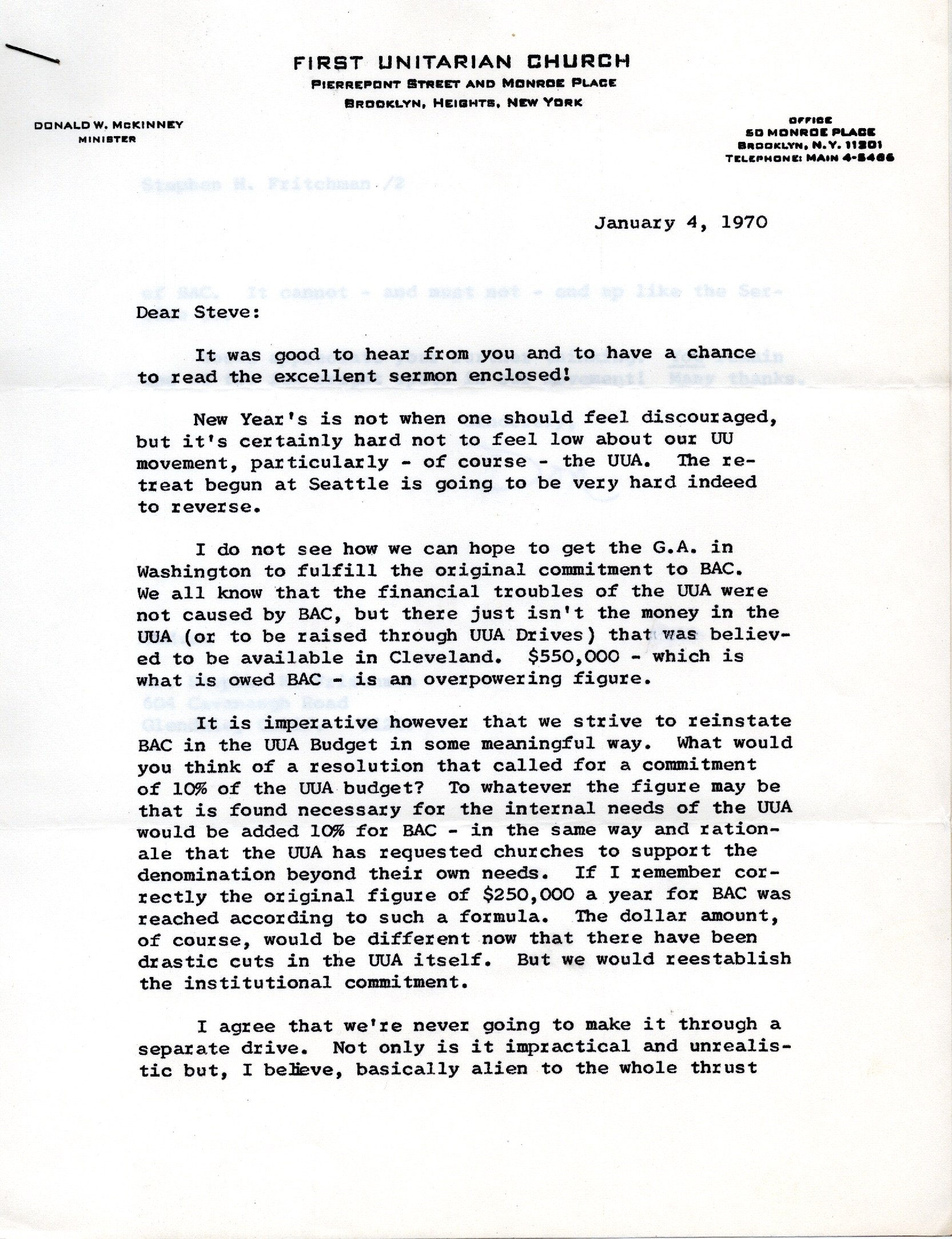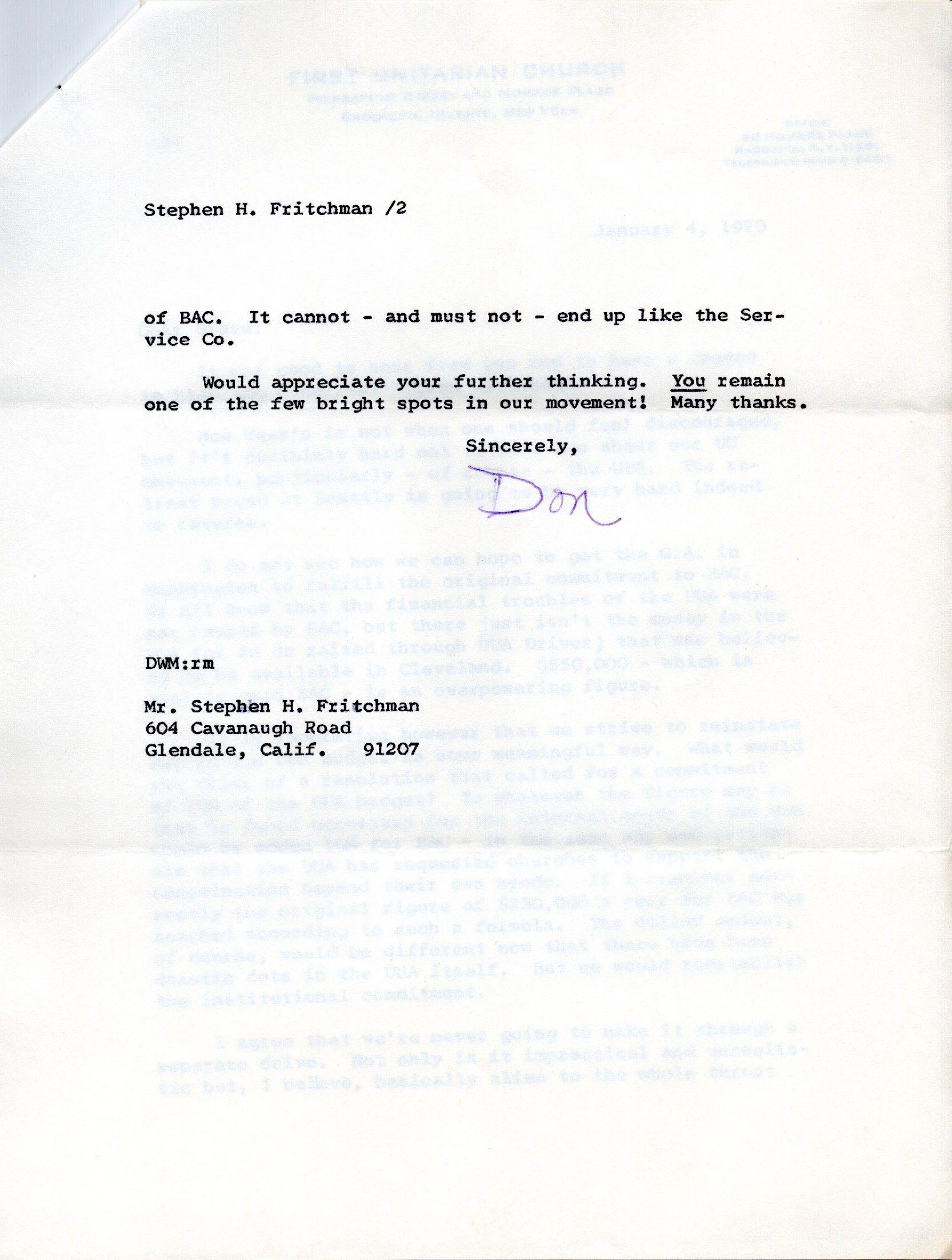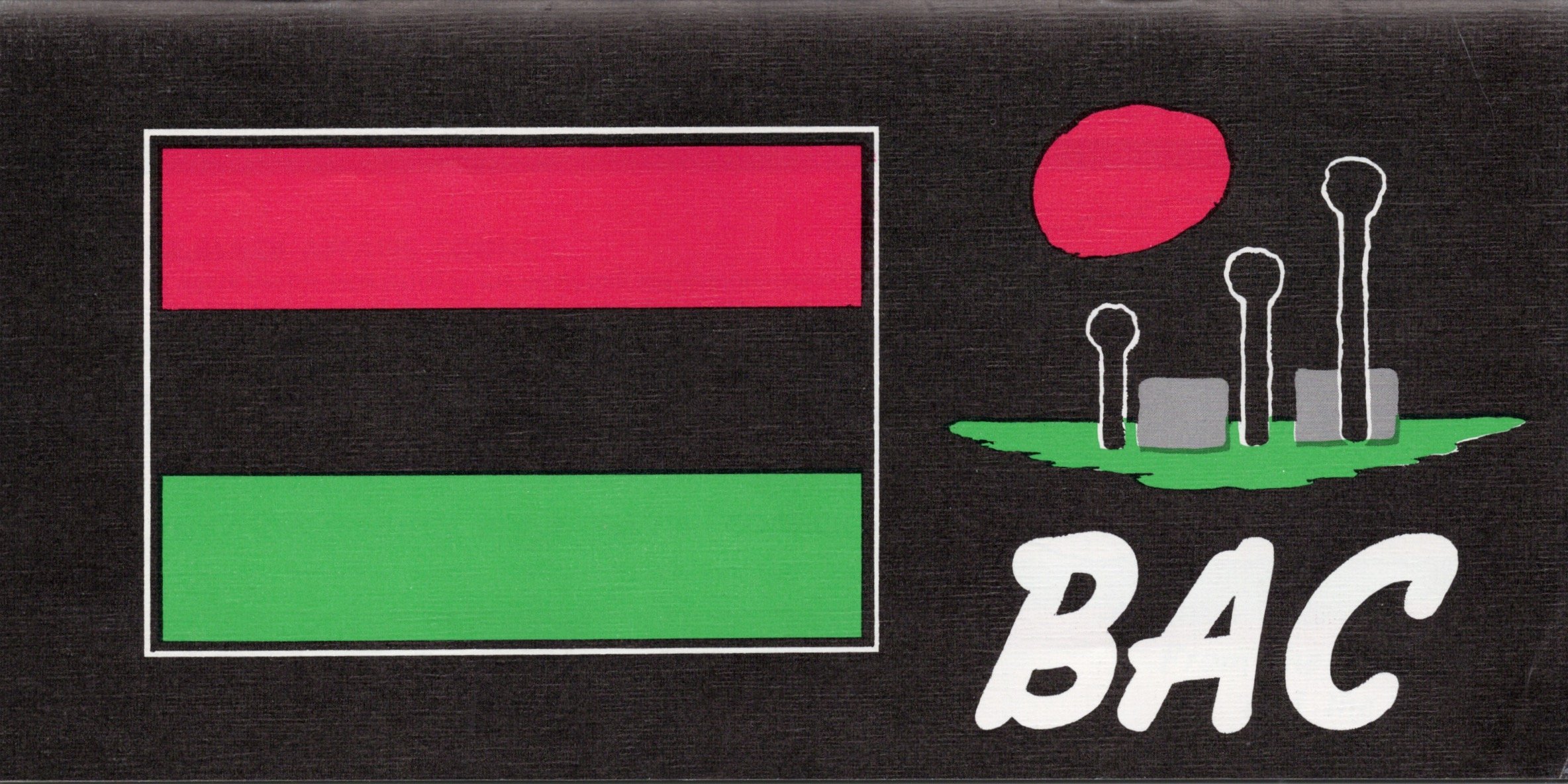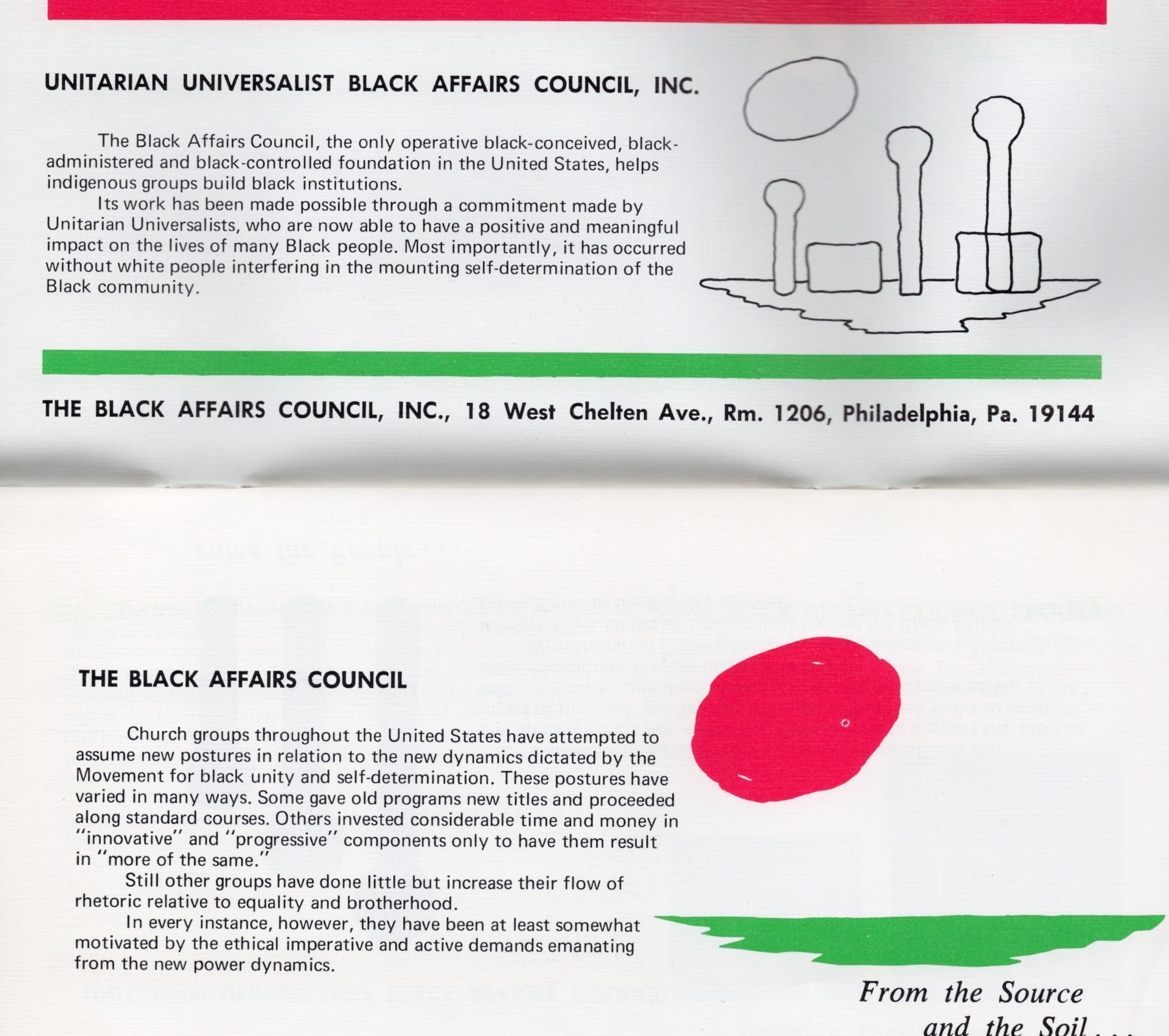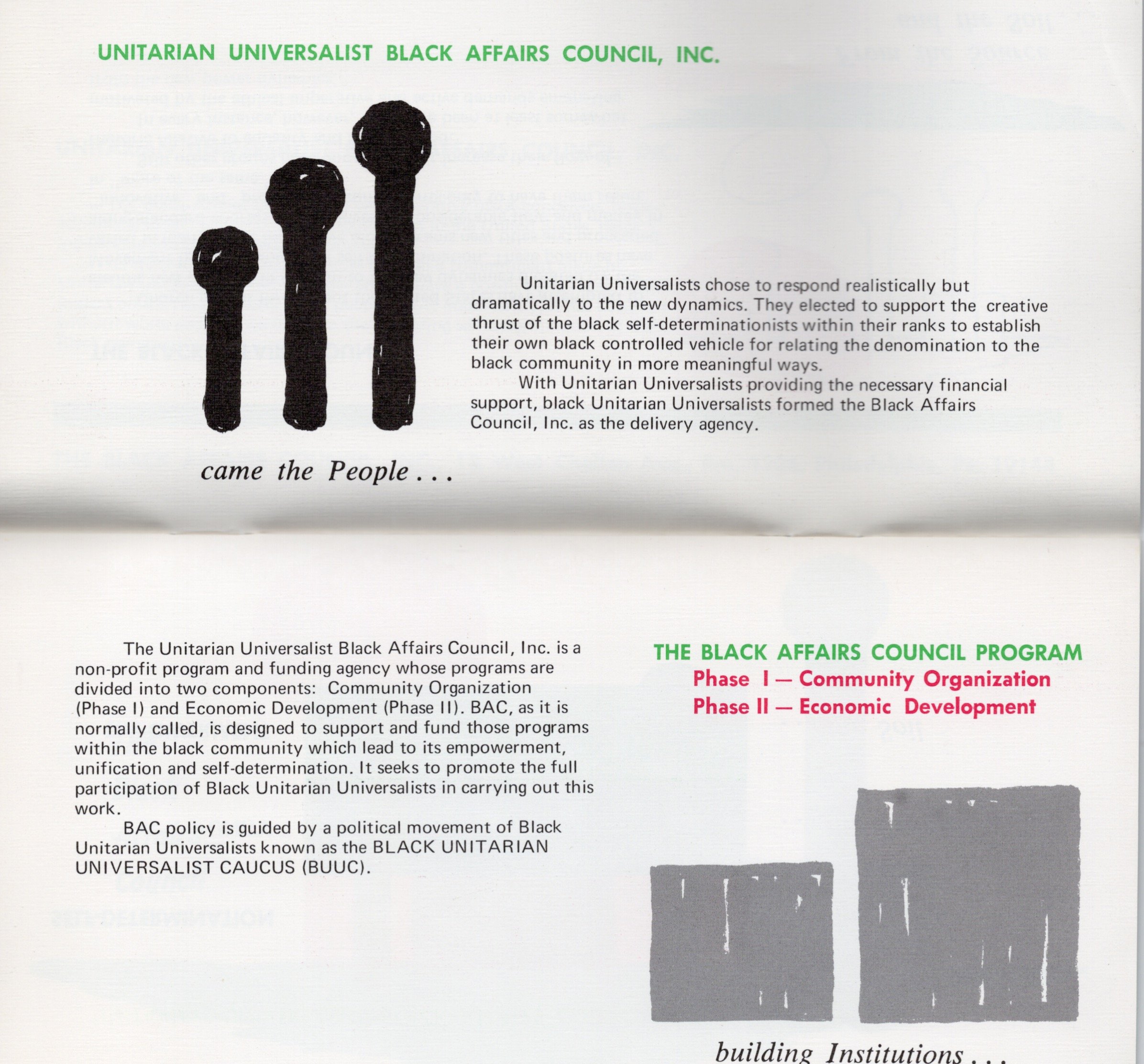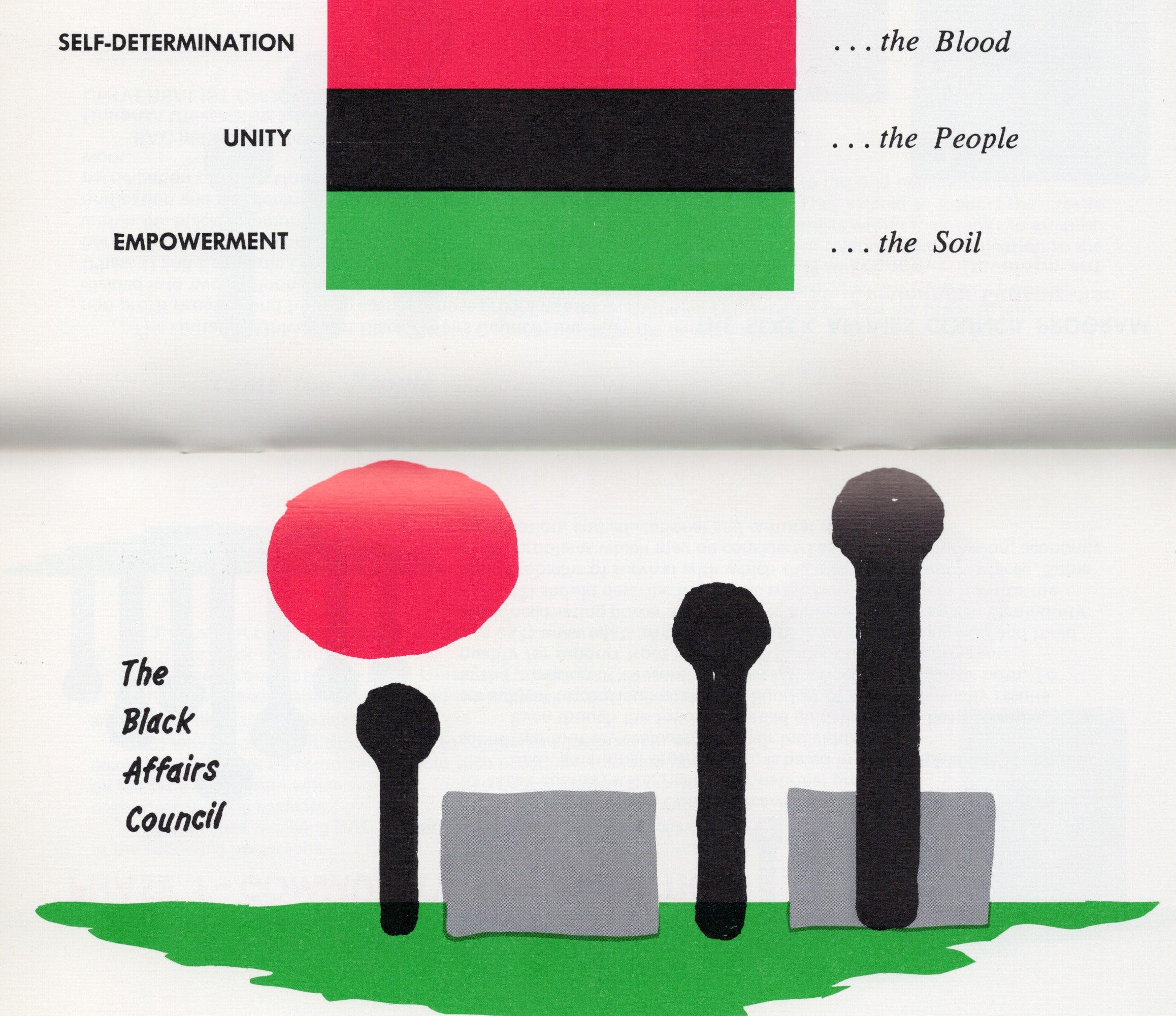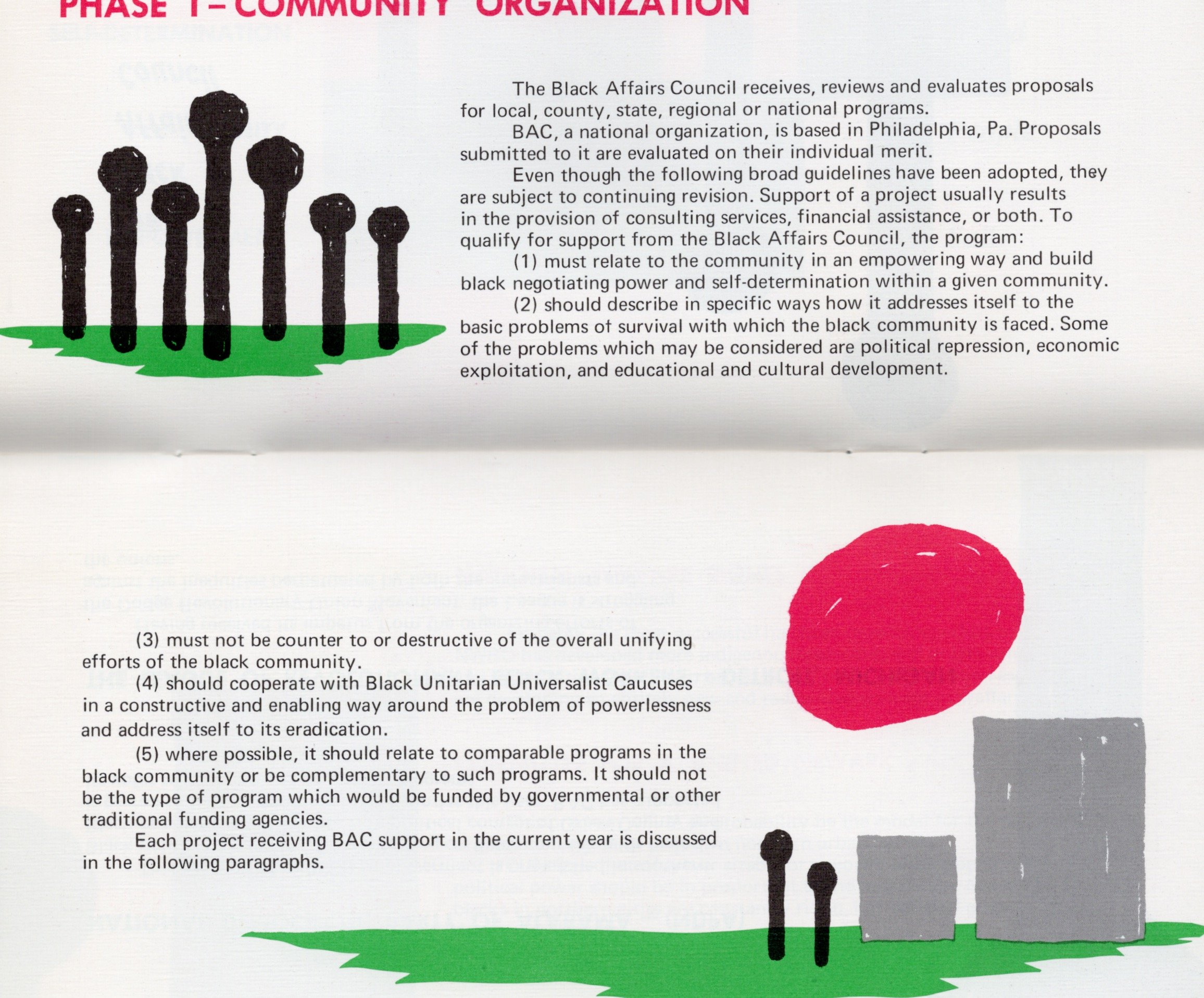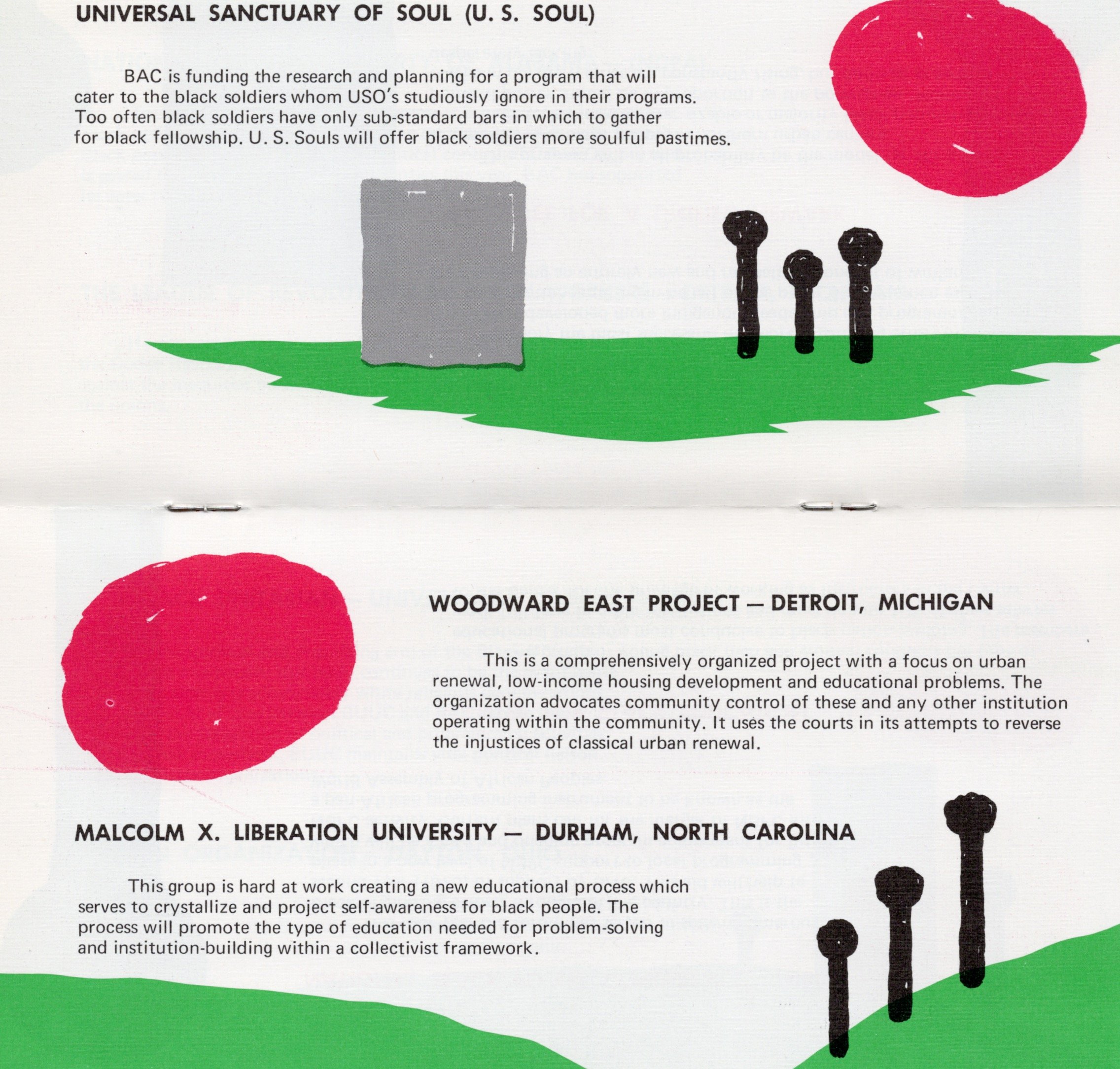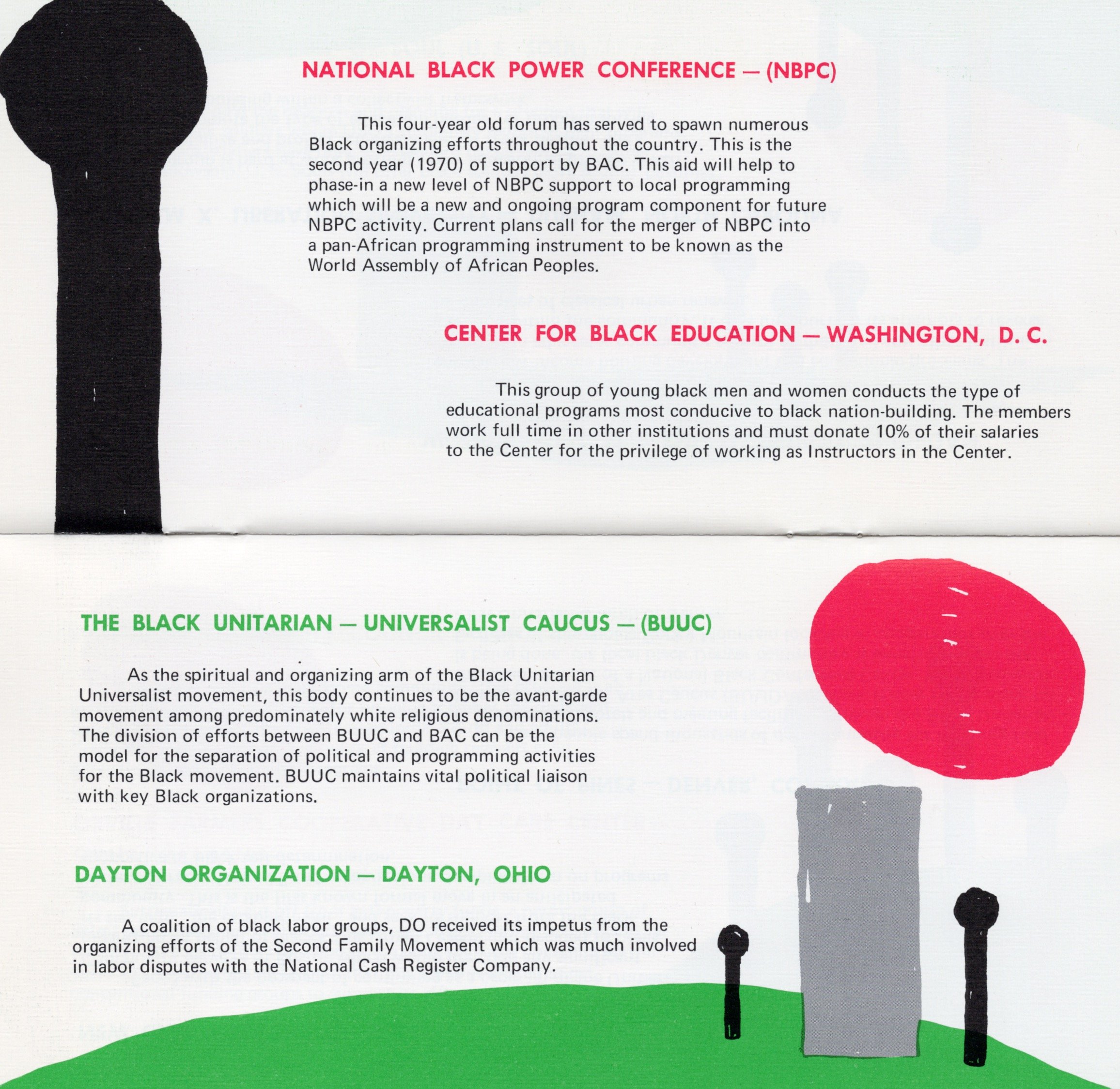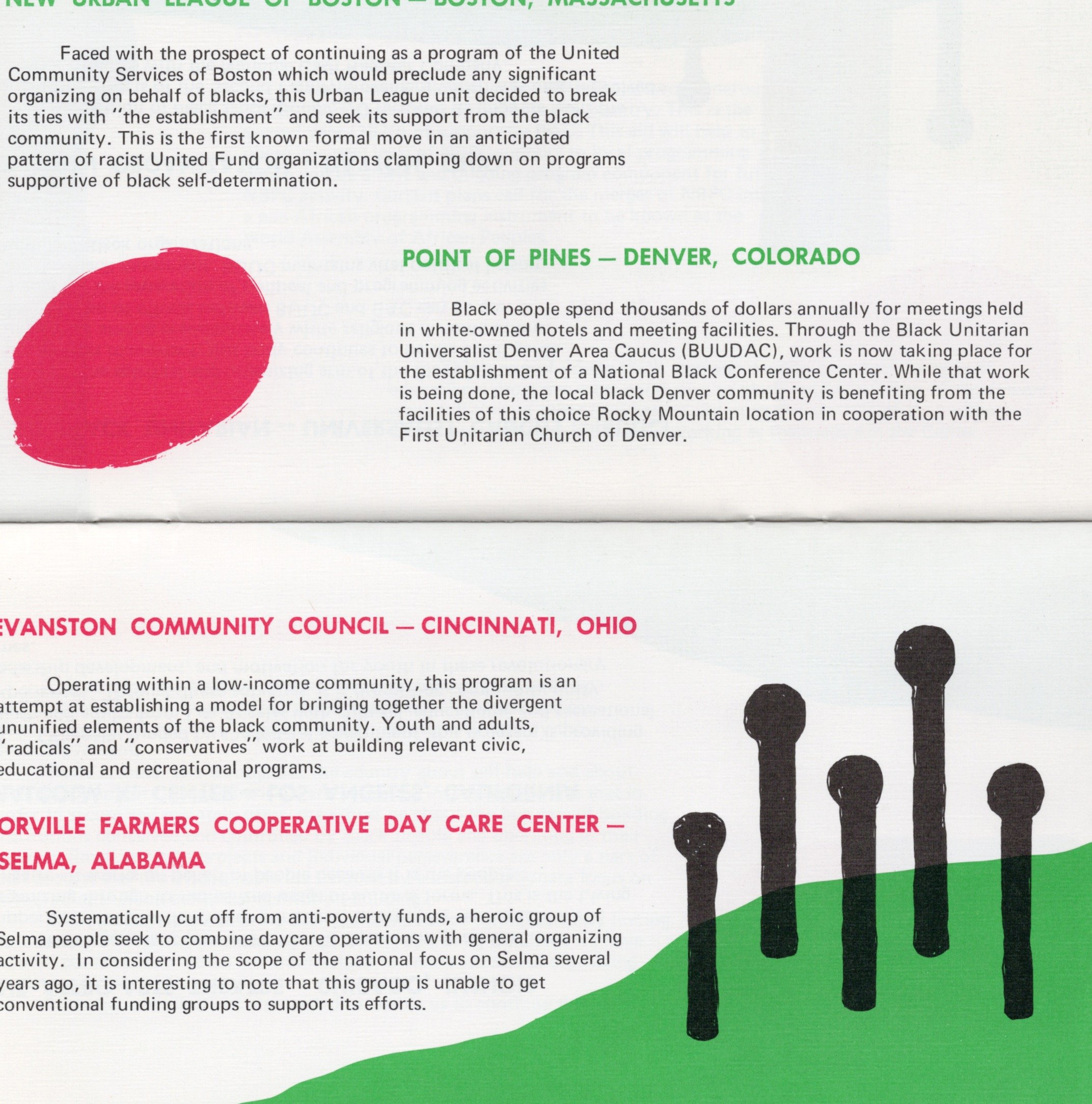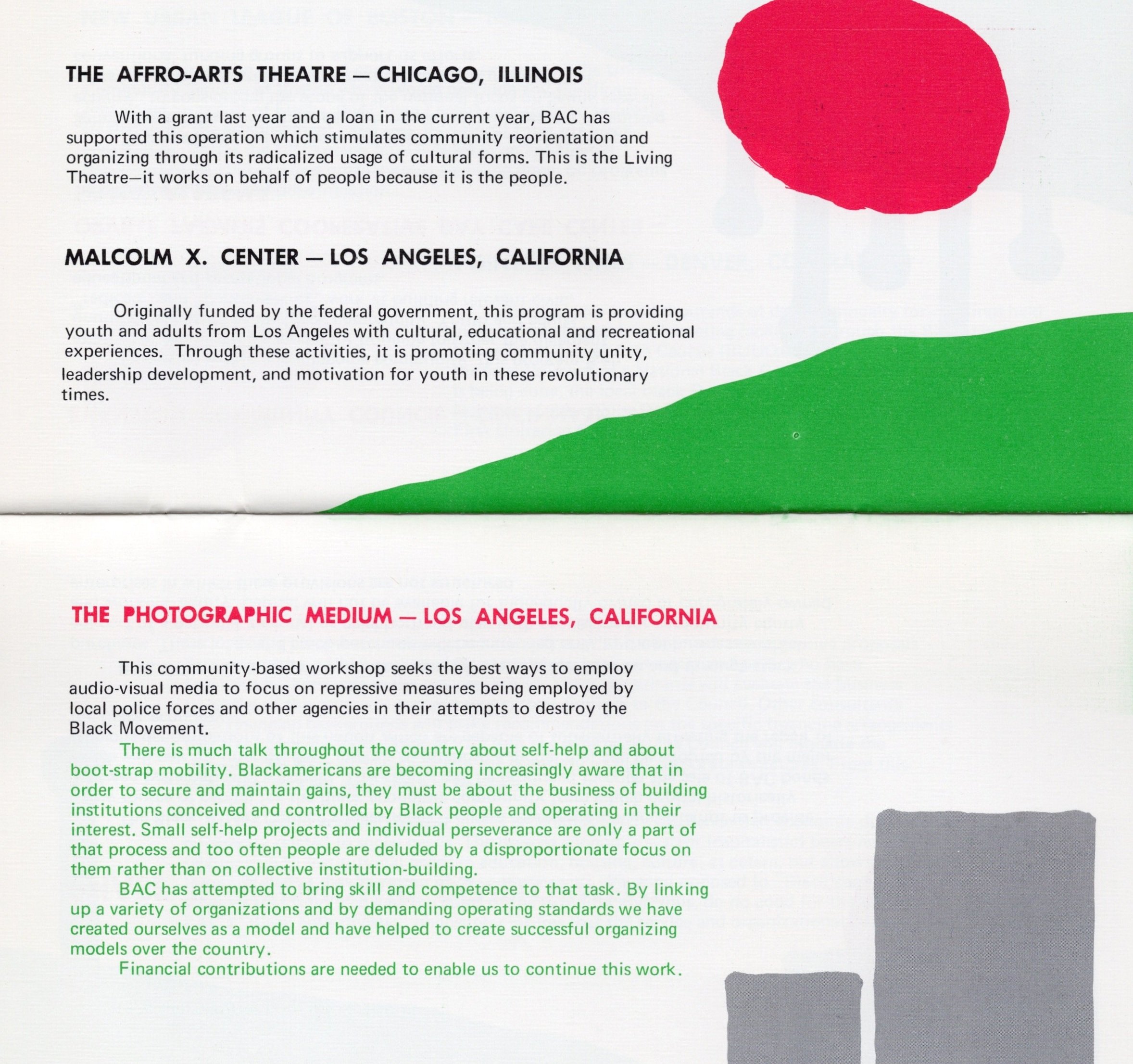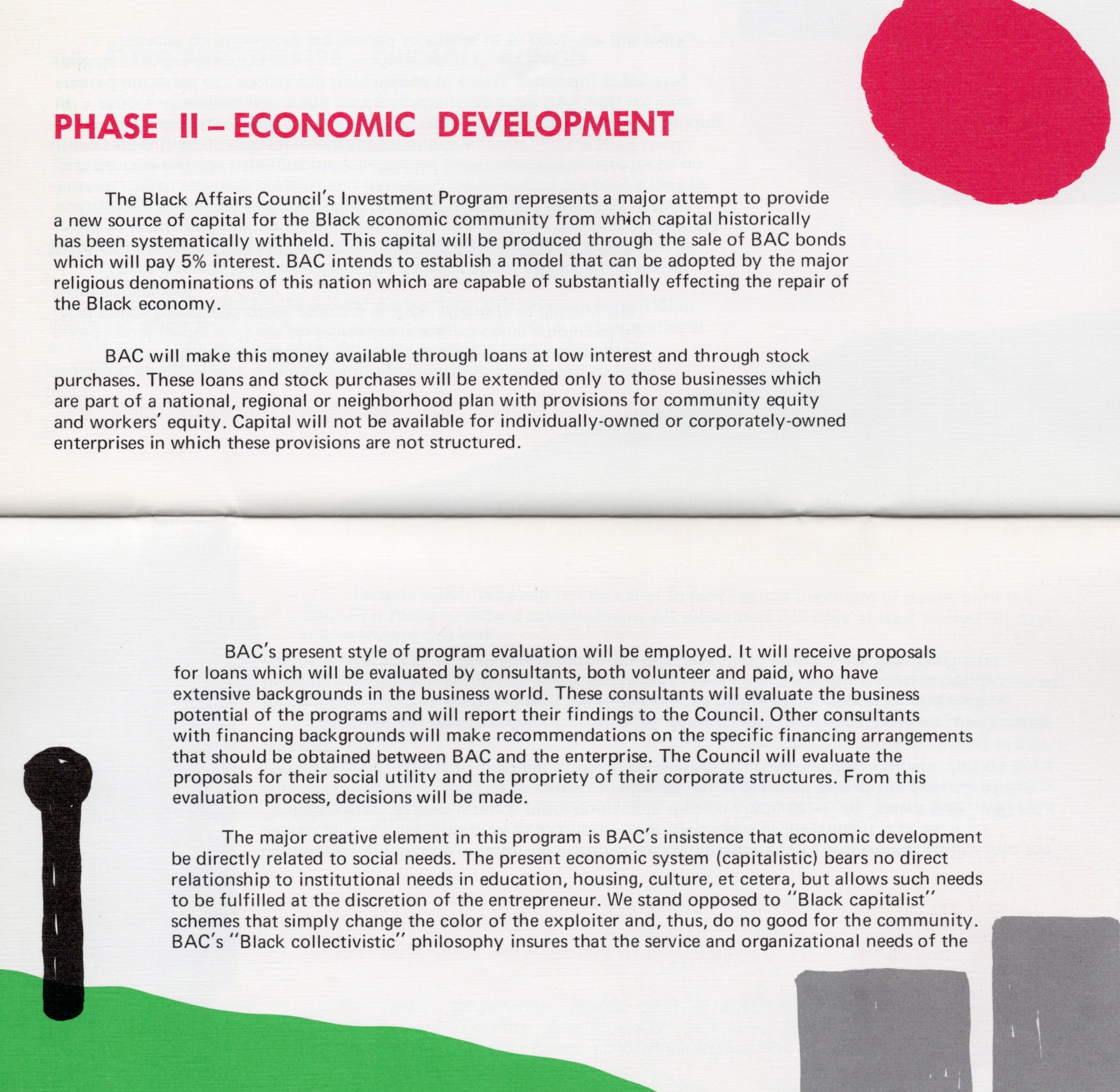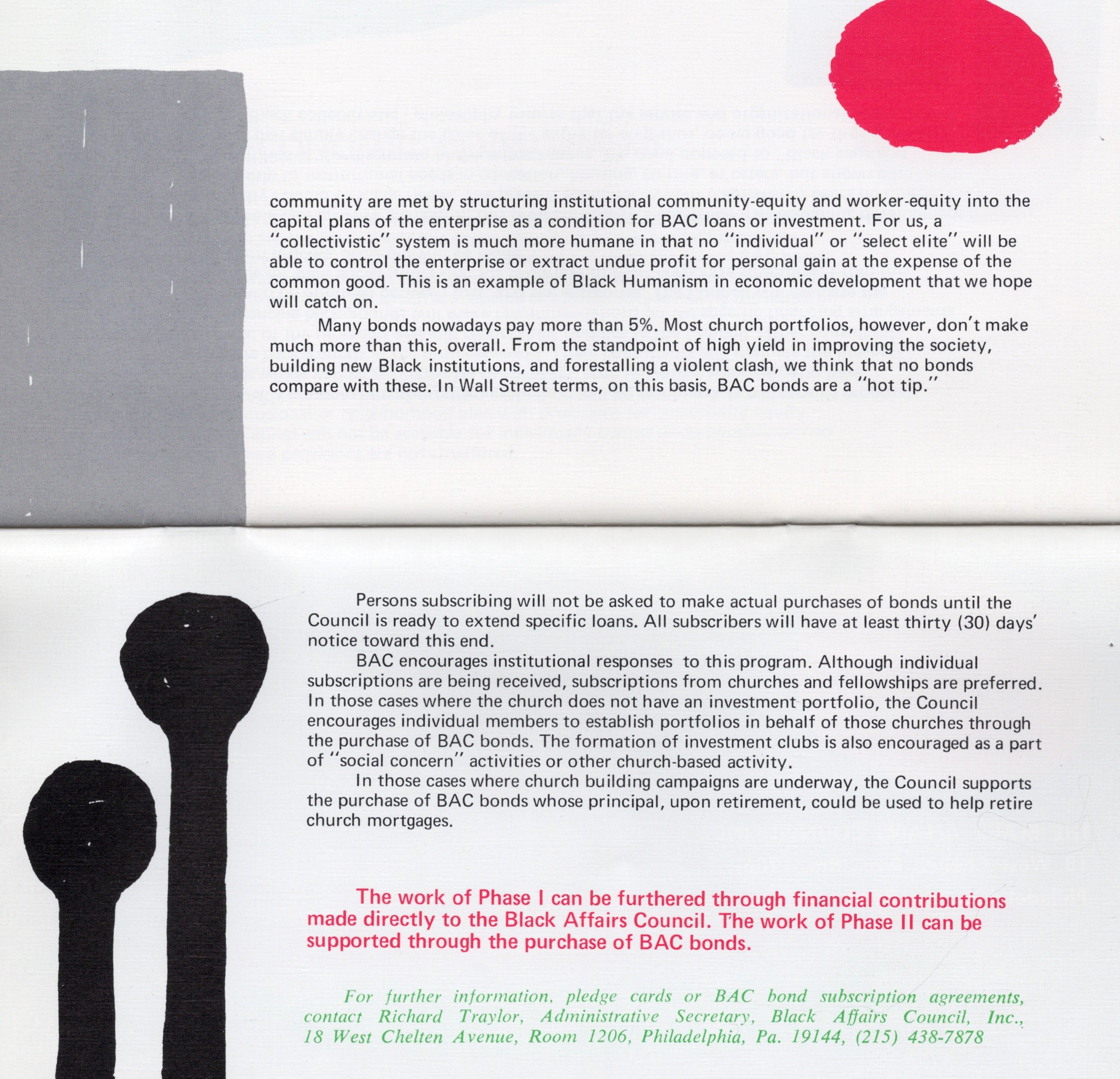1969
-The Walkout at the 1969 General Assembly in Boston-
The agenda of the 1969 General Assembly began with routine administrative concerns and ceremonial events. But the delegates, many of whom traveled to Boston focused on the much more contentious continued funding of BAC and BAWA, wanted to decide that issue first rather than towards the end of the Assembly. One delegate later reported that “every trick in the book was used to prevent” changes to the agenda.
After the traditional greetings and introductions, Haywood Harry (now known as Dr. Mtangulizi Sanyika), Chairperson of the BAC, went to a microphone on the floor and announced: “Unless the Assembly agrees to deal with these basic problems now, not next Wednesday, the microphones will be possessed and the business of the house will come to a halt.”
Once the Parliamentarian recognized Harry’s motion, he continued: “In all this time you have not come to the real issue. The funding of BAWA is wrong. The commitment to fund BAC and only BAC must be honored. We have been telling the Board of Directors this for nine months, and nothing has been done to correct the situation…What we seek is a repreational grant as is our due by the 1968 vote.” The debate over changing the order of the agenda became unusually contentious.
At one point, Fritchman rose to speak. Members of BAC, who had taken control of the microphones, gave him the mic. Fritchman told his fellow Unitarian Universalists that now was the time to act: “For forty years I have dedicated my life to the effort to make other races welcome to our free fellowship. Now we have a chance to do something really significant, and now you tell me to wait until Wednesday. I’ve waited for forty years, and I don’t intend to wait till Wednesday.”
Harry’s motion to amend the agenda failed. The following morning, a motion to reconsider the previous day’s motion was made and defeated by a vote of 692-687. For many, that was the final straw. The BAC got up and walked out of the Assembly. They were joined by 300 of their supporters who also walked out in response to a vote for “regular order” over the more pressing requests by BAC.
All nine of our congregation’s delegates and Frichman walked out without hesitation. One of our longest serving members, who is now in her 90s, Ann Maupin, was one of those delegates. She reported to the congregation several days later that the walkout was necessary because “we could not get an open agenda.”
The New York Times described both the Black Affairs Council and Black and White Action as “militant groups”
Published on July 16, 1969
Those BUUC members and its supporters gathered at the nearby Arlington Street Church.
The following day, UUA President Greely and President-elect West helped mediate the schism and the delegates returned to the Assembly.
A vote was taken to fund BAC at the $250,000 level promised in 1968, and it passed with a close vote of 798 to 737.
- a Promise Not Kept -
The victories of the BUUC and its supporters at the 1968 and 1969 General Assemblies were short lived. Rev. Robert West became president of the UUA after the 1969 General Assembly and he was faced with organization had been running deficit budgets for several years. The budget that West inherited was $2.6 million but the UUA had an income of only $1.6 million. Banks were threatening foreclosure if deficits continued and debt continued to mount. West was determined to right the ship; he would reduce the expenditures of the UUA to save the organization from financial ruin. He proposed cutting subsidies to several organizations but proposed maintaining the $250,000 per year commitment to BAC.
The UUA Board decided to go against West’s recommendation to keep BAC’s full allotment and in November 1969, voted to reduce the commitment to BAC by $50,000, so that it would receive $200,000 per year and the total $1 million commitment would be paid over 5 years instead of 4.
That broken promise was arguably the beginning of the end for the BAC. Since they did not obtain their full $250,000 in funding, the BAC decided to disaffiliate with the UUA so it could raise the remaining $50,000. As an affiliate organization, the BAC was not permitted to conduct its own fundraising. Disaffiliating allowed it to raise funds that the UUA promised but failed to deliver.
In a letter to Fritchman dated January 4, 1970, Rev. Don McKinney, who served on the BAC longer than any other Euro-American, acknowledged that the actions of the UUA Board were discouraging and that it was necessary to make sure the BAC receives funding from the UUA in the future, in some meaningful way:
For its part, the BAC set up a plan to raise additional funds in late 1969 and early 1970 and in addition to soliciting direct contributions, the BAC began selling BAC bonds. They went out to local churches directly for funding. One of the colorful BAC flyers promoting their fundraising and bonds describes the purposes of the bonds and several of the programs funded by the BAC:
While Fritchman retired from full-time ministry in 1969, he remained committed to doing what he could to help BAC fundraise directly from churches and to ensure that the UUA kept its promise to fund the BAC.
Read More -> 1970 General Assembly in Seattle


